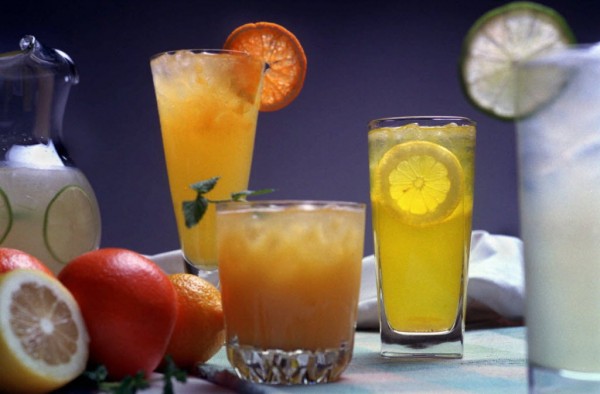Just say ‘No’ to lemon wedges in drinks

I’ve always been grossed out by the idea of dropping a lemon slice into my water or iced tea.
Not because of what I may taste but because of what I can’t taste.
I don’t consider myself a germaphobe, but I cringe just thinking about the number of fingers touching that lemon slice before it plops into my drink. Sure, the slicer’s hands may have been clean, but I doubt the servers and bartenders are washing their hands each time they approach the tubs of fruit garnish.
This Huffington Post story just reinforces my position.
In one study, researchers swabbed the rinds and flesh of 76 lemons from 21 restaurants collected during 43 visits and found that 70 percent of them produced microbial growth. That’s despite the fact that lemons have known antimicrobial properties.
“Restaurant patrons should be aware that lemon slices added to beverages may include potentially pathogenic microbes,” the authors wrote.
Philip Tierno, a clinical professor of microbiology and pathology, has conducted dozens of similar experiments, according to the Huffington Post story. In one of his studies, Tierno found that nearly half of lemon wedges collected from various restaurants were contaminated with human fecal matter.
According to the story, “Restaurants may not be diligently washing lemons — or they rinse them, but don’t scrub. It’s also easy for a worker’s hands, whether it be a bartender serving up a drink or a chef slicing the fruit in the kitchen, to cross-contaminate after dealing with patrons, washing glasses and handling food.”
Tierno told HuffPost his study found bacteria from the intestines (fecal matter), the respiratory tract (from coughing, talking, sneezing) and the skin.
Among the specimens collected, according to Huffington Post, were E. coli, staph and candida, a fungus commonly found in the vagina.
As disgusting as the findings are, Tierno says the germy lemon slice is unlikely to make you sick. Tierno also points out his research has turned up similar organisms all over restaurants, from ketchup bottles and salt shakers to menus and table surfaces.
“Microbes are ubiquitous,” he told Huffington Post. “You’re not going to escape unscathed forever.”
That may be true, but I think I’ll continue to pass on the lemon slice.
